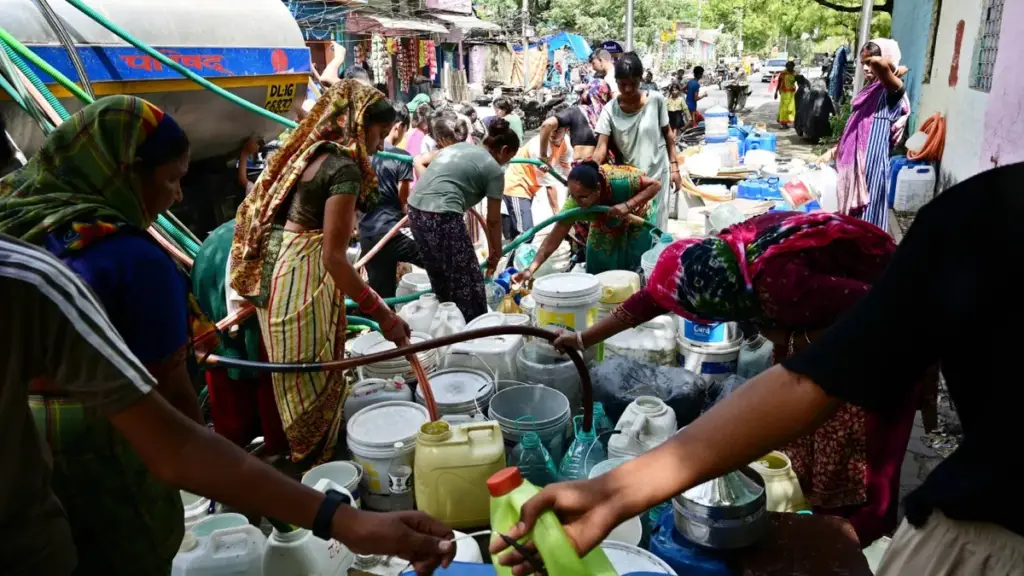
India, a land of rich cultural heritage and diverse landscapes, is facing a looming crisis that threatens the very foundation of its prosperity – the availability of fresh water. As the world’s second-most populous country, India’s water resources are under immense strain, with several regions experiencing severe water scarcity. In this blog post, we will delve into the pressing issue of water scarcity in India and explore how efficient water storage systems can play a crucial role in mitigating this crisis.
Regions Facing Severe Water Scarcity in India
India’s vast geography encompasses a wide range of climatic conditions, from the snow-capped Himalayas in the north to the arid deserts of the west and the lush tropical forests in the south. However, this diversity also means that the availability and distribution of water resources are highly uneven across the country.
One of the regions most severely affected by water scarcity is the state of Maharashtra, particularly the Marathwada and Vidarbha regions. These areas have experienced consecutive droughts in recent years, leading to a critical shortage of water for both agricultural and domestic use. The government has had to resort to using water trains to transport water to the areas that have been most severely affected by the situation.
Another region grappling with water scarcity is the state of Rajasthan, where the arid climate and limited rainfall have long been a challenge. The Thar Desert, which covers a significant portion of the state, is particularly vulnerable to water shortages, with many villages and towns facing acute water scarcity, especially during the dry summer months.
The southern state of Tamil Nadu has also been impacted by water scarcity, with the capital city of Chennai facing a severe water crisis in 2019. The city’s four main reservoirs had nearly dried up, leading to widespread rationing and the deployment of emergency measures to ensure water supply.

The Role of Efficient Water Storage Systems
As the demand for water continues to rise due to population growth, industrialization, and agricultural expansion, the need for effective water management strategies has become increasingly critical. One of the key solutions to mitigating water scarcity in India lies in the implementation of efficient water storage systems.
Traditional water storage methods, such as rainwater harvesting and the construction of dams and reservoirs, have played a vital role in ensuring water availability in various regions. However, these systems often face challenges, such as limited storage capacity, evaporation losses, and siltation.
To address these issues, innovative water storage technologies have emerged, offering more efficient and sustainable solutions. Underground water storage systems, for instance, can significantly reduce evaporation losses and protect water resources from contamination. These systems, which involve the storage of water in aquifers or underground tanks, can help to capture and retain rainwater during the monsoon season for use during the dry periods.
Another promising approach is the use of decentralized water storage solutions, such as community-based water tanks and household-level rainwater harvesting systems. These localized storage systems can help to reduce the burden on centralized water infrastructure and empower communities to manage their own water resources.
Additionally, the integration of advanced monitoring and control systems can further enhance the efficiency of water storage systems. By leveraging the power of data analytics and smart technology, water managers can optimize storage operations, identify leaks, and enhance water distribution, leading to better utilization of scarce water resources.

Conclusion
Water scarcity in India is a complex and multifaceted challenge that requires a comprehensive and collaborative approach. While the regions facing severe water shortages are a testament to the urgency of the situation, the role of efficient water storage systems provides a glimmer of hope.
By investing in innovative water storage technologies, promoting decentralized solutions, and leveraging the power of data and smart systems, India can take significant strides towards securing its water future. This is not only essential for the well-being of its people but also crucial for the sustainable development and prosperity of the nation as a whole.
As we navigate the uncharted waters of the 21st century, the importance of water security cannot be overstated. It is our collective responsibility to ensure that every drop is used wisely and that the precious resource of water is preserved for generations to come.


